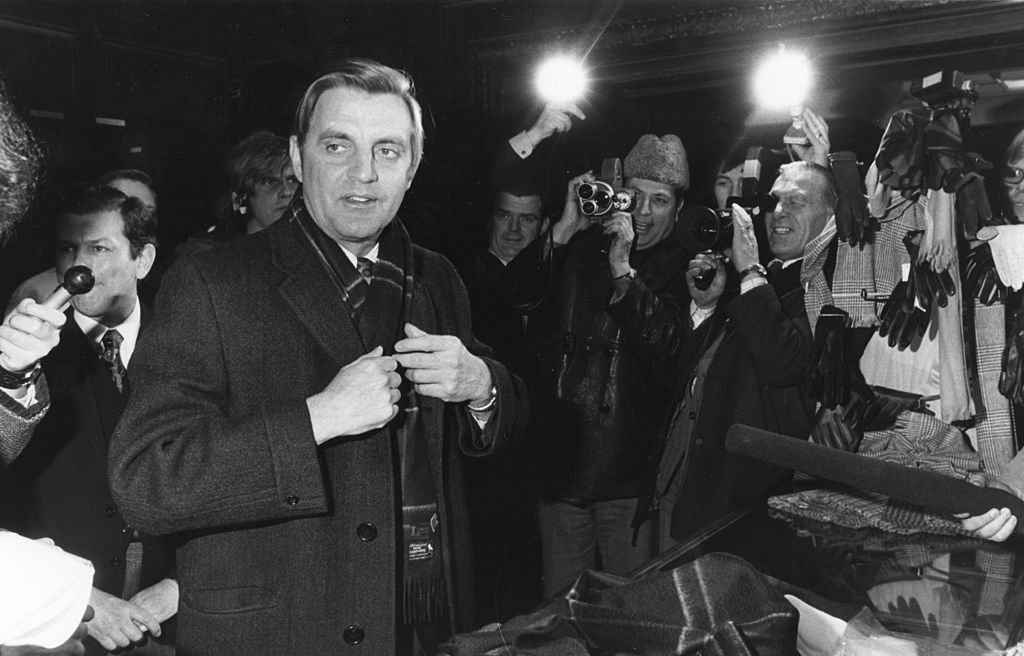Walter Mondale changed the Senate filibuster, and he would have reformed it again


A free daily email with the biggest news stories of the day – and the best features from TheWeek.com
You are now subscribed
Your newsletter sign-up was successful
Former Vice President Walter Mondale (D), who died Monday, led a successful effort to reform the filibuster in 1975, when he was a U.S. senator from Minnesota. Before Mondale and James Pearson (R-Kan.) introduced a resolution to reform cloture, the parliamentary mechanism to end a filibuster, at the beginning of the 94th Congress, a two-thirds majority of senators present and voting were needed to break a filibuster; Mondale and Pearson pushed for three-fifths of all senators voting and present.
Senate Rule XXII, which governed cloture, "in its present form, has protected the right of debate at the expense of the right to decide," Mondale told his Senate colleagues. "Rule XXII has significantly impaired the ability of this body to function."
Sen. James Allen (D-Ala.) led the opposition to the measure, and after several rancorous weeks of debate, the Senate agreed to a compromise resolution in which three-fifth of the entire Senate, or 60 senators, had to agree to invoke cloture and thwart a filibuster. That rule still stands for legislative filibusters, though once again there is clamor for reform amid obstruction.
The Week
Escape your echo chamber. Get the facts behind the news, plus analysis from multiple perspectives.

Sign up for The Week's Free Newsletters
From our morning news briefing to a weekly Good News Newsletter, get the best of The Week delivered directly to your inbox.
From our morning news briefing to a weekly Good News Newsletter, get the best of The Week delivered directly to your inbox.
Earlier in his Senate career, Mondale supported a simple majority of 51 senators to quash a filibuster. And he and Pearson briefly set a precedent for a 51-vote cloture, James Wallner explained in 2019. But Mondale had changed his mind by then. "As I see it, it is an issue between the ability to paralyze, on the one hand, and the ability to require full ventilation of an issue, on the other," he said in 1971. "In my opinion, there are crucial issues which demand full consideration by the Senate."
By 2011, Mondale was ready for another round of cloture reform. In 1975, senators hoped lowering the threshold to 60 votes from 67 "would preserve debate and deliberation while avoiding paralysis, and for a while it did," he wrote in a 2011 New York Times op-ed. "But it's now clear that our reform was insufficient for today's more partisan, increasingly gridlocked Senate." Mondale suggested lowering the threshold to 55 votes, or "requiring a filibustering senator to actually speak on the Senate floor for the duration of a filibuster."
"I still would like to keep some of the filibuster," Mondale said in 2013. "I think the Senate should be different from the House. I'm looking for that mysterious line between requiring debate and consultation on the one hand and paralysis on the other hand. ... What we clearly have today is paralysis."
A free daily email with the biggest news stories of the day – and the best features from TheWeek.com
Peter has worked as a news and culture writer and editor at The Week since the site's launch in 2008. He covers politics, world affairs, religion and cultural currents. His journalism career began as a copy editor at a financial newswire and has included editorial positions at The New York Times Magazine, Facts on File, and Oregon State University.
-
 Political cartoons for February 10
Political cartoons for February 10Cartoons Tuesday's political cartoons include halftime hate, the America First Games, and Cupid's woe
-
 Why is Prince William in Saudi Arabia?
Why is Prince William in Saudi Arabia?Today’s Big Question Government requested royal visit to boost trade and ties with Middle East powerhouse, but critics balk at kingdom’s human rights record
-
 Wuthering Heights: ‘wildly fun’ reinvention of the classic novel lacks depth
Wuthering Heights: ‘wildly fun’ reinvention of the classic novel lacks depthTalking Point Emerald Fennell splits the critics with her sizzling spin on Emily Brontë’s gothic tale
-
 Nobody seems surprised Wagner's Prigozhin died under suspicious circumstances
Nobody seems surprised Wagner's Prigozhin died under suspicious circumstancesSpeed Read
-
 Western mountain climbers allegedly left Pakistani porter to die on K2
Western mountain climbers allegedly left Pakistani porter to die on K2Speed Read
-
 'Circular saw blades' divide controversial Rio Grande buoys installed by Texas governor
'Circular saw blades' divide controversial Rio Grande buoys installed by Texas governorSpeed Read
-
 Los Angeles city workers stage 1-day walkout over labor conditions
Los Angeles city workers stage 1-day walkout over labor conditionsSpeed Read
-
 Mega Millions jackpot climbs to an estimated $1.55 billion
Mega Millions jackpot climbs to an estimated $1.55 billionSpeed Read
-
 Bangladesh dealing with worst dengue fever outbreak on record
Bangladesh dealing with worst dengue fever outbreak on recordSpeed Read
-
 Glacial outburst flooding in Juneau destroys homes
Glacial outburst flooding in Juneau destroys homesSpeed Read
-
 Scotland seeking 'monster hunters' to search for fabled Loch Ness creature
Scotland seeking 'monster hunters' to search for fabled Loch Ness creatureSpeed Read
